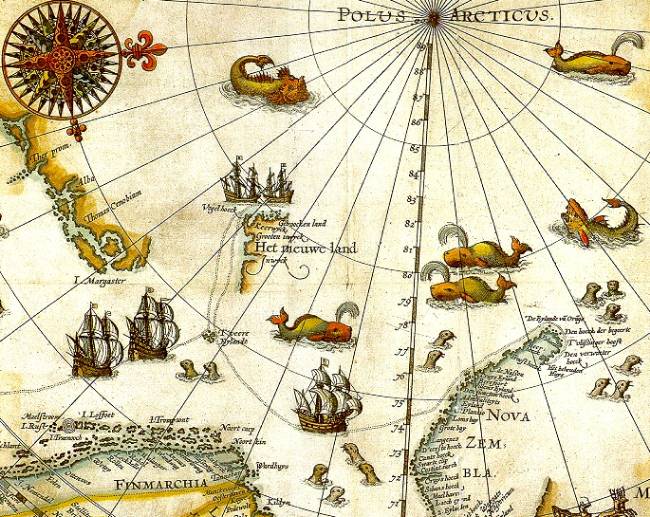"Makten över Svalbard" is the Swedish title of a Spanish (sic) documentary about Svalbard, the contested archipelago in the Arctic Sea. I´m not familiar with the original Spanish title. Svalbard has a somewhat curious status. Most of the territory is administered by Norway, but it´s simultaneously also an international demilitarized zone. Any nation that signs the so-called Svalbard Agreement can exploit the archipelago´s natural resources.
There are two towns at Svalbard: Longyearbyen and Barentsburg. The former is the seat of the Norwegian governor. The latter is a Russian mining town and seems to be de facto independent of the Norwegian authorities. A large portion of the documentary deals with the simmering conflict between the two towns. Barentsburg looks like an anachronism, with a bust of Lenin, some Soviet flags and even a mural showing a red (!) polar bear. By contrast, Longyearbyen is surprisingly modern. Half of the population are Norwegians, the other half come from 50 different nations.
When Russia attacked Ukraine, most Ukrainian citizens left Barentsburg and moved to Longyearbyen. The Norwegian settlement then imposed its own "sanctions" against Barentsburg. They refuse to do any business with the Russian town, tourism is actively discouraged, and climate scientists stationed in the Norwegian town don´t seem to be allowed to work with Russian scientists. Barentsburg looks pretty deserted, with most shops and diners being almost empty. Western sanctions against Russia makes it difficult for the Russian mining company to obtain new machinery.
Despite the Russian coal mines being barely profitable, Russia nevertheless refuses to evacuate. Svalbard is simply too strategically important and might become even more so in the future, ironically because of global warming. If the ice recedes in the Arctic Sea, new shipping lanes will open up. The Northeast Passage might suddenly become more important than the Suez Canal. Also, new natural resources could be exploited on the islands. Russia has already invited China to finance a mysterious project at Pyramiden, an abandoned mine...
Meanwhile, Longyearbyen are setting themselves up for failure. The last coal mine on the Norwegian side will close in 2025, the town will make a "Green transition" to solar and geothermal energy, et cetera. The mining workers (the only longterm residents) will leave, and most people at Longyearbyen will presumably be transient scientists and tourists. Not sure how this is supposed to counter the Russian influence?
However, there is also an element of hypocrisy in the whole thing. One scientist says that diesel fuel will be used even after 2025, and it turns out that the mine (originally set to close already in 2023) was kept operational for two more years since Germany needed the coal after losing Russian oil and gas due to Western sanctions. Note also the absurdity of importing diesel fuel to islands with *literal coal mines*! Both are fossil fuels, of course.
A fascinating part of the docu is about the Svalbard Global Seed Vault, a facility for the storage of plant seeds from all over the world. The seeds are stored in the permafrost. But...the permafrost might start melting due to climate change. What will happen to the unique Arctic genebank then?
All in all, a quite interesting documentary, although I often drew somewhat different conclusions from it than those presumably intended by the producers.
Sure wonder what happens when somebody tells a certain Donald Trump about this valuable piece of real estate in the Arctic...

No comments:
Post a Comment